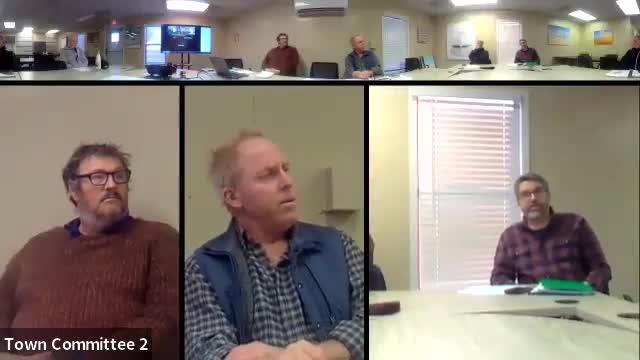Maya Comet Pond dredging delayed as Army Corps permit remains pending; town readies procurement and spoil handling plan
Get AI-powered insights, summaries, and transcripts
Subscribe
Summary
Town staff told the Harbor Shellfish Advisory Board that the Maya Comet Pond dredging project will likely be deferred until fall because the U.S. Army Corps of Engineers permit is still pending; staff said state grant funding is secure, procurement will begin soon, and dredged material will be dewatered for possible reuse.
At its Feb. 18 meeting, the Harbor Shellfish Advisory Board heard that the Maya Comet Pond dredging project will not occur this season because the U.S. Army Corps of Engineers permit remains outstanding, and town staff expect the work to move forward in fall or winter instead.
The town has secured a state grant for the project and will begin procurement for dredging contractors in the coming weeks, Jeff Carlson, natural-resources staff, told the board. “We have all but 1 permit. We're still waiting for a permit from the corps,” Carlson said. He added the delay “doesn't affect the grant we received from the state, the million dollar grant that we got from from those folks to do that project.”
Why it matters: Pond dredging is intended to restore navigation, reduce nuisance growth, and generate material that the town hopes to reuse for shoreline work or compost. Board members and public commenters raised concerns about local wildlife (eels and crabs), haul routes and trucking, and how dredged sediment will be processed and stored.
Town staff described next steps and spoil handling. Carlson said the dredged slurry will be pumped to the wastewater treatment facility for dewatering and sorting so cleaner sands can be separated and, after testing, possibly reused for beach nourishment or as a compost supplement. “We can separate that material by, essentially by soil type,” Carlson said. He added that testing so far had not identified heavy-metal or persistent-organic contaminant problems and that some material may be suitable as a compost supplement.
Board members and public commenters urged the town to inventory pond fauna before dredging and to consider trapping eels ahead of operations. A public commenter recommended setting traps “and maybe somebody goes in there for the summer and sets eel traps and cages them because…when they start dredging that mud, those eels are gonna come out with it.” Carlson said the dredging permit process will require pre‑work biological assessments that document what is living in the pond ahead of dredging.
Staff also described a wider dredging program for the harbor. Carlson said preliminary engineering work on a harborwide dredge plan is underway; priority locations raised by attendees included Polpis Harbor, Easy Street Basin and the Bachamo channel. He said the town hopes to obtain a general permit that would allow smaller annual maintenance dredges rather than a single large removal schedule.
Board members asked about truck routes and local impacts; Carlson said much of the material will be slurry‑pumped to the treatment facility rather than trucked directly from the pond, but he warned that the full operation will require significant trucking for any material that cannot be reused on site.
The town plans pre‑procurement outreach to local and regional firms in the next 60 days and to prepare the engineering footprints once the remaining permit(s) arrive. If the remaining federal permit arrives soon staff indicated work would be scheduled for fall/winter.
